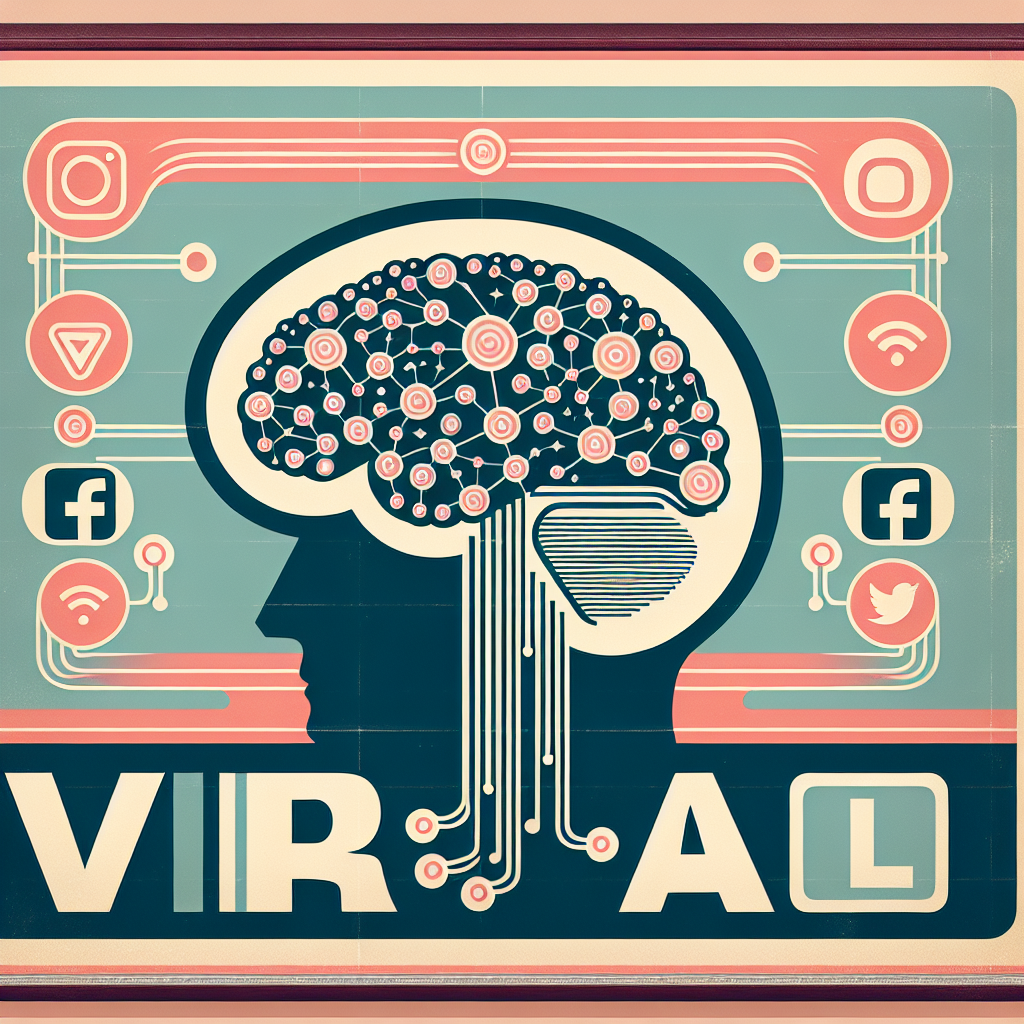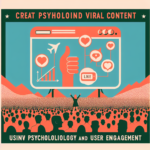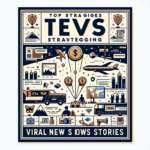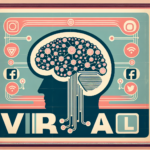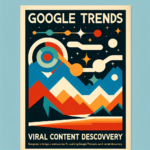Introduction to AI in Marketing
Did you know that Artificial Intelligence (AI) is rapidly transforming the world of marketing? In the modern, digital era, AI has become a game-changer in how businesses operate and connect with their target audience. But what exactly are these transformations and how do they impact marketing strategies?
In this article, we will examine how AI has revolutionized various aspects of marketing, focusing on its influence in automation, personalized customer experiences, predictive analytics, content creation, and advertising. We’ll also explore AI’s impact on social media marketing, market research, and the rise of generative AI in enhancing creative marketing practices.
Whether you’re a seasoned marketer or someone keen on understanding how technology is disrupting traditional marketing, this article is for you. Let’s explore the AI-driven future of marketing!
How AI Transforms Marketing Strategy
Automating Routine Tasks
AI significantly impacts marketing by automating repetitive tasks. This frees up time for marketers to focus on high-level strategy. AI tools can handle:
- Data Analysis and Insights
- Email Campaign Management
- Social Media Scheduling
Automation streamlines operations, reducing the chance of human error and enhancing efficiency.
Personalized Customer Experiences
AI enables marketers to deliver highly personalized experiences. By analyzing customer data, AI can tailor content, product recommendations, and marketing messages. Key benefits include:
- Improved customer engagement
- Increased conversion rates
- Higher customer loyalty
For example, AI-powered chatbots can provide personalized assistance to customers in real-time.
Enhanced Predictive Analytics
AI improves predictive analytics, allowing marketers to forecast trends and consumer behavior. This involves:
- Demand forecasting
- Customer behavior prediction
- Trend analysis
With predictive insights, companies can allocate resources effectively and plan future campaigns. Forbes explains how predictive analytics is a game-changer for business strategies.
Content Creation and Curation
AI assists in generating and curating content, helping marketers maintain a steady stream of material. AI tools can:
- Generate video and textual content
- Analyze existing content for performance
- Provide content recommendations
This creates more dynamic marketing strategies, reaching audiences with timely and relevant messages.
Improved Targeting and Ad Strategies
AI enhances targeting capabilities, optimizing ad spending. Through AI, marketers can:
- Identify target audience segments
- Optimize ad placements and budgets
- Track and analyze ad performance
As a result, marketing becomes more efficient, maximizing ROI and minimizing costs.
Social Media Marketing: The AI Influence
AI and Social Media Monitoring
AI contributes to social media marketing by aiding in social media monitoring, an important task for detecting conversations and emotions related to a brand or product. AI-based tools can:
- Capture social media conversations
- Analyze sentiments and emotions
- Provide detailed reports on users’ opinions
Social media monitoring with AI tools can help to understand and respond to audience sentiments and preferences in a timely manner.
Chatbots: The AI-Powered Conversation Agents
Often spotted at the interface of social media messaging services, chatbots leverage AI technology to engage customers, responding to their queries and directing them towards suitable products or services. They can:
- Interact with multiple users simultaneously
- Guide users towards an informative blog, a hot deal or a new product
- Remember user preferences for future interactions
These AI chatbots can effectively step in as customer service agents, responding to inquiries at any time of the day and significantly improving customer experience.
AI in Influencer Marketing
AI technology plays a significant role in influencer marketing. With AI, marketers can:
- Identify appropriate influencers aligned with their brand
- Analyze an influencer’s audience and engagement levels
- Evaluate the effectiveness of an influencer-driven ad campaign
In other words, AI can automate and enhance the process of finding the right influencer, ensuring more targeted and effective influencer marketing strategies.
Real-time AI-driven Analytics
AI delivers real-time analytics, important for adjusting social media marketing strategies as and when required. AI can:
- Analyze user behavior on social media in real-time
- Deliver immediate insights into the reach and effectiveness of a campaign
- Recommend adjustments to improve campaign outcomes
This instantaneous access to data and insights allows marketers to tweak campaigns on the fly, allowing for more agile social media marketing strategies. Check this Social Media Today article on the benefits of real-time analytics.
AI and Visual Searches
AI has made possible the concept of visual search in social media marketing. Brands can now:
- Enable image-based product searches
- Tag product images to directly lead consumers to purchasing pages
- Use user-generated visual content to boost authenticity
AI-powered visual searches are evolving to be an engaging route for connecting consumers with products, enhancing the customer experience by merging browsing and shopping.
How AI is Changing Market Research
Automating Data Collection and Analysis
AI significantly alters market research by automating data collection and analysis processes. Traditional market research involved manual data gathering, often a time-consuming endeavor prone to errors. With AI:
- Data from various sources is compiled automatically
- Real-time data analysis identifies trends and outliers swiftly
- Automated reports provide actionable insights instantly
This automation saves time and reduces error margins, allowing researchers to focus on strategic aspects rather than mundane tasks.
Enhanced Qualitative Analysis
AI tools revolutionize qualitative analysis by understanding the nuances of consumer opinions and behaviors. Through natural language processing (NLP), AI can:
- Analyze text from surveys, social media, and reviews to gauge sentiment
- Identify underlying consumer emotions and preferences
- Extract key themes and topics from large datasets
This ability to deeply interpret qualitative data helps companies understand their target audiences better and develop informed strategies.
Predictive Insights for Consumer Behavior
AI enhances predictive capabilities, aiding researchers in forecasting future trends and consumer actions. Predictive analytics powered by AI can:
- Identify patterns in historical consumer data
- Predict future purchasing behaviors
- Anticipate market demands and shifts
These insights enable companies to be proactive rather than reactive, optimizing their offerings and marketing messages (source: Forbes).
Survey Optimization and Dynamic Questioning
AI optimizes surveys by using dynamic questioning techniques. This involves:
- Tailoring questions based on a respondent’s previous answers
- Improving the relevance and engagement of surveys
- Decreasing the number of questions needed for insightful data
AI-driven surveys not only enhance response rates but also allow researchers to extract deeper insights from shorter, more personalized questionnaires.
AI-powered Competitive Analysis
AI facilitates more effective competitive analysis by continuously monitoring competitors’ activities and consumer reactions. AI tools can:
- Scrape and analyze competitors’ marketing strategies and performance
- Track social media and online mentions of competitors
- Provide insights into competitors’ strengths and weaknesses
Such comprehensive analysis helps businesses stay ahead in the market and adapt quickly to competitive pressures.
Real-Time Feedback Analysis
AI provides the tools for analyzing real-time feedback from customers, which is important for staying aligned with consumer preferences. AI capabilities include:
- Instant sentiment analysis from feedback channels
- Tracking of customer satisfaction and engagement
- Immediate notification of any negative feedback trends
This real-time analysis ensures that companies can make swift adjustments to address any issues, thereby enhancing customer relations and satisfaction.
Generative AI: Revolutionizing Marketing Practices
Dynamic Content Creation with Generative AI
Generative AI is transforming how content is created in marketing by producing textual, visual, and even audio content on demand. This allows marketers to:
- Create personalized advertisements quickly
- Generate creative social media posts tailored to different audience segments
- Produce engaging newsletters and emails
By harnessing AI’s creativity, businesses can maintain a consistent dialogue with their target audience, ensuring timely and relevant messaging that resonates with varied consumer preferences.
Customizing Product Recommendations
With the data-crunching prowess of generative AI, marketers can offer highly customized product recommendations, enhancing shopping experiences. This can include:
- Auto-generating product descriptions tailored to specific consumer interests
- Utilizing AI for virtual try-ons or interactive product demos
- Developing AI-generated product lines based on consumer trend data
Such personalization refines the customer experience, increasing engagement and potential sales conversions.
An Evolution in Creative Collaborations
Generative AI is also enabling new forms of creative collaboration between marketers and AI systems. It helps in:
- Offering creative suggestions and ideation in content brainstorming sessions
- Collaborating on the development of advertising campaigns with unique AI-generated insights
- Testing multiple creative outputs simultaneously to see which resonates best with the audience
These capabilities make it possible to explore a range of creative possibilities within marketing strategies, ultimately leading to more inventive and resonant campaigns.
Augmented Consumer Insights and Behavioral Predictions
Generative AI enhances our understanding of consumer behavior through advanced data synthesis. This involves:
- Creating detailed consumer profiles from diverse data points
- Predicting future buying behaviors with more nuanced models
- Simulating consumer interactions to forecast potential engagement
With these insights, marketers can effectively shape their strategies, anticipating consumer needs and aligning their offerings accordingly. Check out more about the implications of AI on consumer insights from this HubSpot article.
Brand Authenticity and Trust
As generative AI becomes integral to marketing, maintaining authenticity and trust is important. Marketers need to consider:
- Maintaining authenticity in AI-generated content
- Ensuring transparency about AI use in marketing communications
- Respecting privacy and data protection norms
By addressing these issues thoughtfully, companies can leverage AI’s potential while building trust with their audiences, essential for long-term brand loyalty.
These advancements underscore generative AI’s transformative role in the marketing landscape, setting the stage for innovative strategies that are both data-driven and creatively inspired.
Conclusion: The Impact of AI in Revolutionizing Marketing
From automating mundane tasks and providing personalized customer experiences to enhancing predictive capabilities and promoting ingenious content creation, AI is significantly transforming marketing strategies. Its applications extend to social media marketing with improved monitoring, interactive chatbots, superior influencer marketing strategies, real-time analytics, and visual searches. AI also revolutionizes market research, automating data collection and analysis, enhancing qualitative analysis, and facilitating competitive analysis, among others.
Generative AI, in particular, offers a new dimension to marketing with dynamic content creation, customized product recommendations, creative collaborations, augmented consumer insights, and considerations for brand authenticity and trust. Embracing these advanced AI tools can pave the way for more streamlined, effective, and innovative marketing strategies that stand out in a rapidly evolving digital landscape.
Frequently Asked Questions – FAQs
What are the main uses of AI in marketing?
AI is utilized in marketing to automate routine tasks, deliver personalized customer experiences, enhance predictive analytics, assist in content creation and curation, and improve ad strategies.
How does AI influence social media marketing?
AI contributes to social media marketing by aiding in monitoring, enabling chatbots to deliver customer service, playing a role in influencer marketing, providing real-time analytics, and enabling visual searches.
How does AI change market research?
AI transforms market research through automation of data collection and analysis, augmenting qualitative analysis, providing predictive insights, optimizing surveys, and facilitating competitive analysis.
What is the role of generative AI in marketing?
Generative AI revolutionizes marketing through dynamic content creation, customization of product recommendations, creative collaborations, enhanced consumer insights, and observance of ethical norms.
